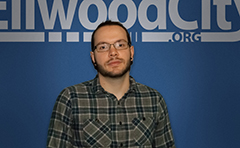Two Fridays ago, on April 29, the Ellwood City Area Public Library hosted an authors’ fair. There were 22 published authors, which only represented about half of the total authors in the area. That alone is an impressive figure, and it was matched by a decent turnout of supportive Ellwoodians.
Even though my current literary ambitions are on a hiatus, I appreciate the recognition from the community, as I’m sure my 21 colleagues do.
Becoming a published author is no easy task. Getting published by a major publishing house is a nigh unobtainable feat.
First, you have to write a book. I’ve written two of those and parts of others. When prospective writers ask how to write a book, my answer is to commit at least 10 hours a week or don’t bother, bearing in mind that those 10 hours must be squeezed in between work, family, social life, school and whatever else you’re doing.
And the masses of struggling authors should have no pretensions. Your first book will probably be sub-par, there is a minuscule chance it’ll get published and even if you self-publish, you’re lucky if you earn more than a few hundred dollars.
Because of Amazon CreateSpace and other alternatives, self-publishing is accessible to everyone with Internet.
Of course, that means you have to proofread yourself, study typography theory and learn how to use CreateSpace. While you’ll get the satisfaction of seeing your book in print and have friends and family read it, that will probably be your only reward.
However, all authors imagine their book on the shelf at Barnes and Noble. The most effective, and common, way of achieving this is through querying literary agents.
Publishers don’t care about you and your manuscript. Except when the stars are properly aligned, they never look at unsolicited submissions. Instead, you have to go through an agent, who will act as a middleman in exchange for a percentage of your royalties.
Sending a query is similar to a cover letter. It’s a three-paragraph blurb about your book that should make someone want to read it. A typical agency receives over 100 queries a week and form-rejects about 99 percent. Even if an agent reads your entire book, she may not like it, and you’re back to square one.
Once you sign with an agent, she has to find a publisher, which isn’t a guarantee. Even getting a contract with a publisher can result in less than hoped. Your royalty checks may still amount to one tenth of your day job’s paycheck.
Reasonably, if you plug away at it for a few decades, you may end up with a modest fanbase and supplemental income. Of course, we all dream of quitting our day job, signing a multimillion dollar Hollywood contract and having a devoted fanbase that includes a hefty percentage of attractive women.
The Ellwood area has a few mainstream published authors. Nancy Wallace signed a three-book contract with Harper Collins UK. You can buy her first book, “Among Wolves,” at the library.
Eric Poole, author of the nonfiction “Company of Heroes,” a biography of local Medal of Honor winner Leslie Sabo, had his own difficult path to publication by Osprey that included having his book autographed by President Barrack Obama.
Regardless of whether an author is self, indie or mainstream published, it’s a remarkable feat, and we greatly appreciate the library’s recognition.
For a select few, being an author is a career. For the other 99.9 percent of us, it’s sitting down for 10 hours a week with no more motivation that the fantastical expectation than the book we’re writing now we’ll be our breakthrough.


Please proofread your work and not yourself unless you’re under a doctor’s care. May cause more than four hours of swelling.
How successful was the event? Did it draw readers? Were books sold?
How did the library handle the need for business licenses?
Will the library host the event again?